13 Ways Playing Games Can Ease Stress

With job expectations to check our email around the clock and our health suffering as a result, there is no shortage of things to worry about these days. So it’s more important than ever to find ways to release your overflowing anxiety and tension. Thankfully, there’s a surprisingly easy and fun way to let go of all that pent-up frustration: playing a game. Whether it’s a puzzle or a board game, here are all the ways these activities reduce stress and help you function better in all aspects of life.
1
They help you focus on something else.

One of the ways games help bust stress is by putting you in a state of flow, shifting your brain from what’s stressing you out to becoming a champion of whatever you’re playing. For example, one 2018 study published in the journal Emotion found that playing Tetris can serve as a helpful coping mechanism for people who are awaiting potentially life-changing news.
The researchers discovered that while the classic game couldn’t alleviate worry altogether, it did decrease levels of negative emotions and improve levels of positive ones. Other games that require high focus would likely have similar outcomes.
2
They can mitigate panic attacks.

Chess can put you in a similar state of flow as Tetris, and psychiatrists have found that this shifted focus can help reduce feelings of panic. In one 2017 case study published in the Asian Journal of Psychiatry, one researcher began playing a game of chess on their mobile phone immediately after they began feeling symptoms of a panic attack and found that playing the game prevented a full-blown attack.
3
They help us unwind after work.
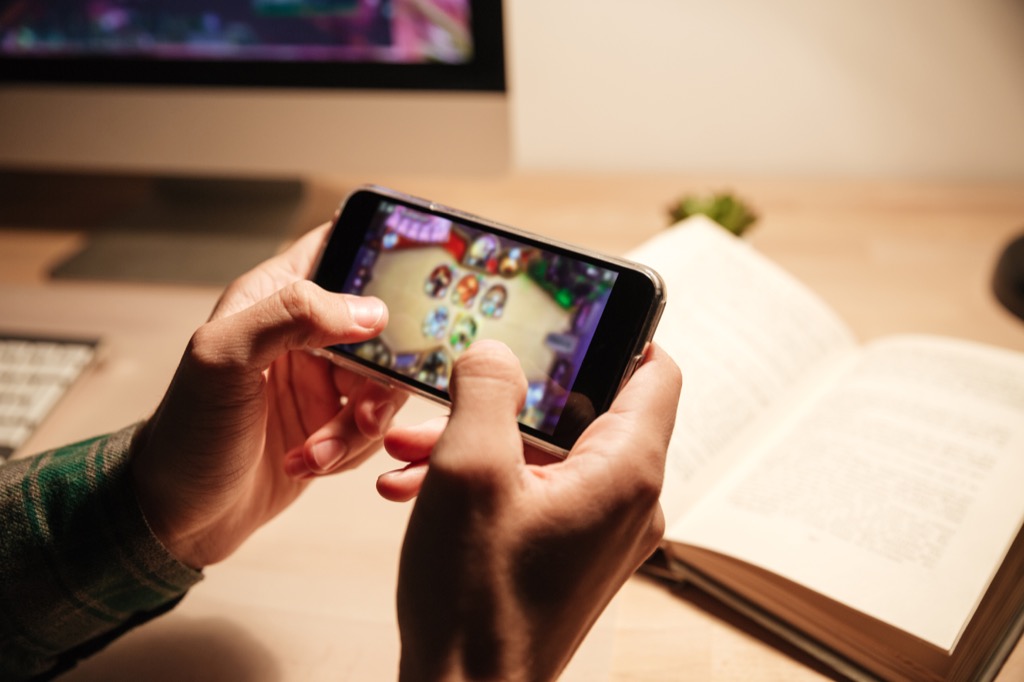
That lingering feeling of stress and tension you have after leaving the office has a name: work-home interference. The good news? Playing a game can help you recover from it.
According to a 2014 study published in the International Journal of Human-Computer Skills, people who used digital games to mitigate their work-home interference recovered from stress faster and more effectively than people who used other methods.
4
They teach us to manage anticipatory anxiety.
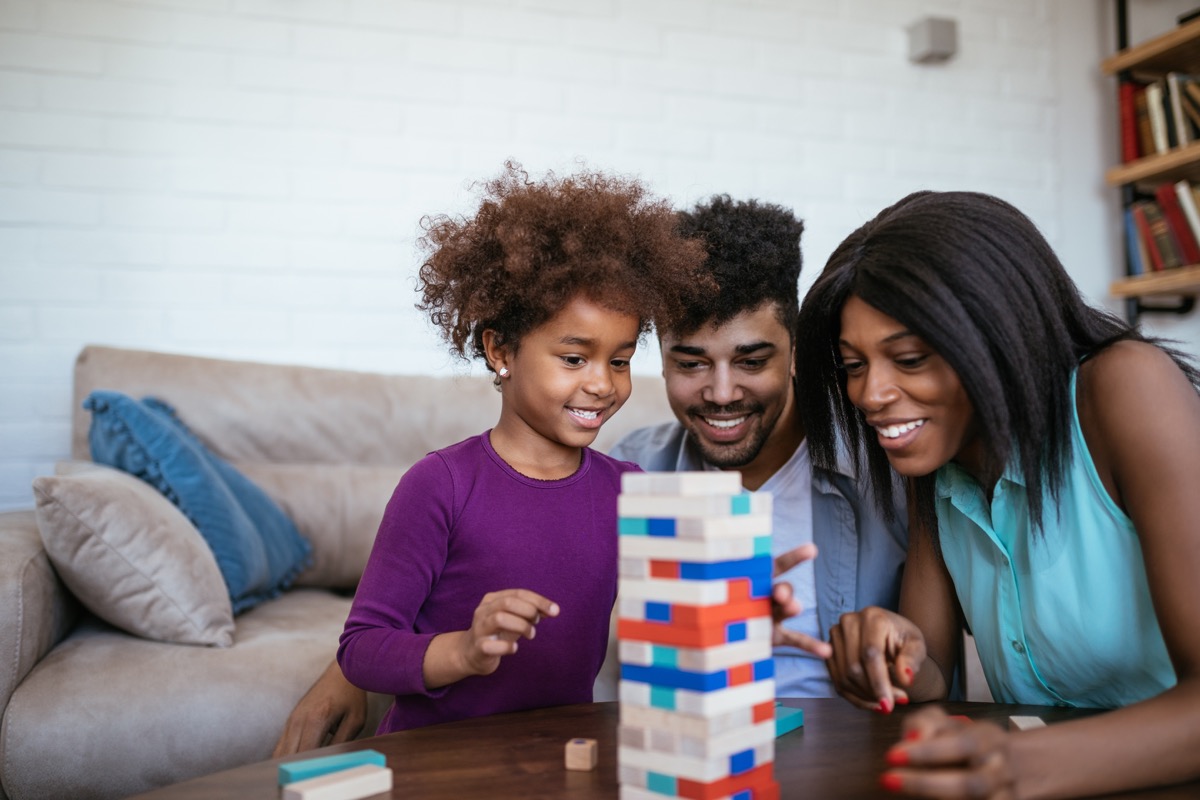
All games involve a certain degree of unpredictability, which means playing them can help us learn to manage our fear of the unknown. “Children who experience a high degree of anticipatory anxiety … can benefit from games as they learn to stay calm when the inevitable tower falls (Jenga), crocodile snaps (Crocodile Dentist), or the last chair is taken (musical chairs),” writes psychologist Nicole Beurkens on her website. “They can experience a brief period of anxiety and practice managing it without having to stick with it for lengthy periods of time.”
5
They teach persistence.
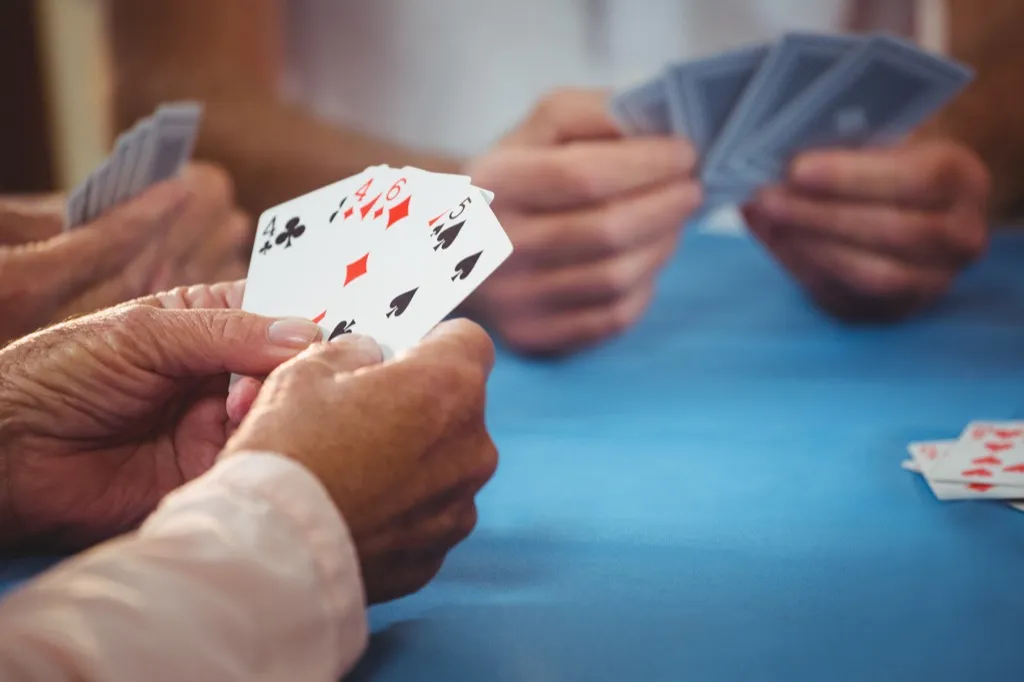
Whether there’s a video game level you can’t seem to conquer or a friend you can’t beat at Spades, playing games will introduce you to obstacles that challenge your patience, creativity, and critical thinking skills. Games are one of the few areas in life in which you can fail over and over again without consequences or criticism, and some experts believe that this teaches players that they can persevere in any aspect of life so long as they don’t give up.
“I believe that many of us become the best version of ourselves,” game designer Jane McGonigal said during her 2020 TED Talk. “The most likely to help at a moment’s notice, the most likely to stick with a problem as long at it takes, to get up after failure and try again.”
6
They help us improve our communication skills.

Few things are more stressful than trying to talk to someone when you feel like you’re speaking an entirely different language. Fortunately, playing games can help with these feelings of disconnect.
Collaborative games like Pandemic, Dungeons & Dragons, and Call of Duty can all help players learn to communicate more effectively. Some games like Mafia and Hanabi even limit your forms of communication, forcing you to find creative ways to pass messages. When you can adapt, you become a better team player who can communicate their feelings with ease both during and after the game.
7
They let your mind wander.
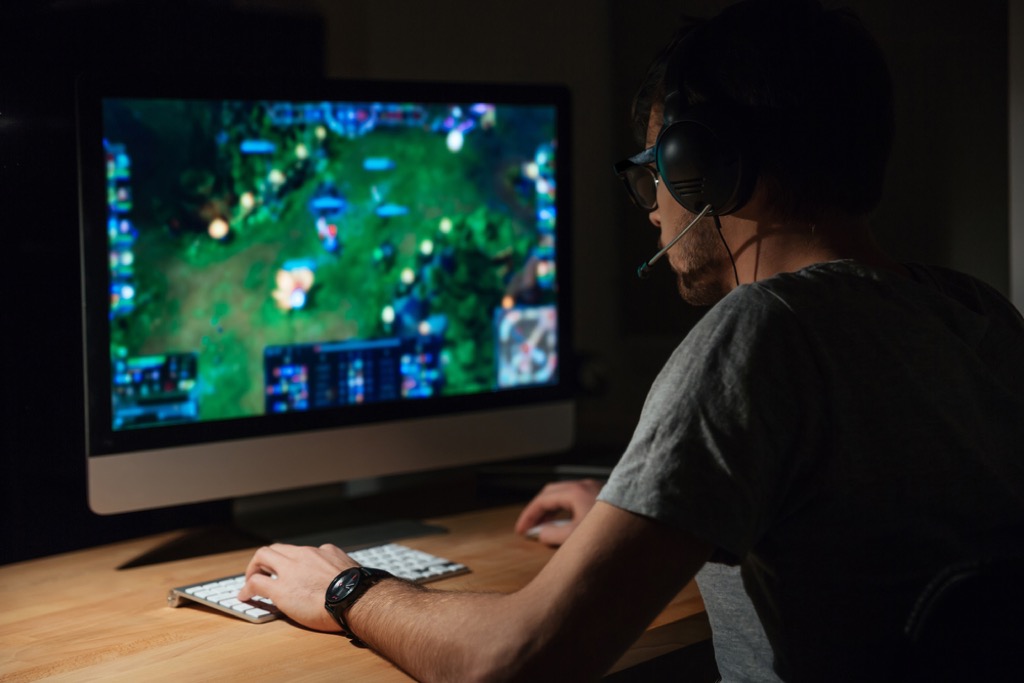
Games that are intensely goal-oriented relieve stress by having you concentrate on something other than your problems. However, ones that are more open-ended are just as helpful in the fight against stress, as a lack of a goal can be a selling point.
Take, for example, Minecraft, which has a creative mode in which players can simply build whatever they want. “The aspect of not being told what to do subconsciously lets the player’s mind roam,” writer Michael Fulton explained in Lifewire.
8
They get you off the couch.

Games like jump rope, tag, and Wii Fit all require you to get up off the couch and be active—and when you’re having fun playing them, you don’t even notice that you’re exercising. After all, any kind of movement is good for your stress levels: Studies have shown that physical activity reduces tension and helps to stabilize mood. Even a low-intensity workout like Wii Bowling ups endorphins and helps you feel energized and rejuvenated.
9
They help us bond with friends.

Stress is easier to manage when you’ve got someone else by your side. In fact, spending time with friends has been shown to reduce levels of cortisol, a stress hormone. You don’t even need to talk about your problems for this to work; just pull out a deck of cards or a Scrabble board and get playing to feel those stress-busting benefits.
10
They increase our cooperation.

The importance of cooperation might be obvious in games like Pictionary or Charades, but what about the average video game? As it turns out, multiplayer video games result in players exhibiting fewer aggressive behaviors and more pro-social behaviors in real-life situations, according to a 2015 study from Texas Tech University. People who are able to work together can accomplish more, reducing the stress and frustration of solving a problem solo.
11
They teach us to be more resourceful.
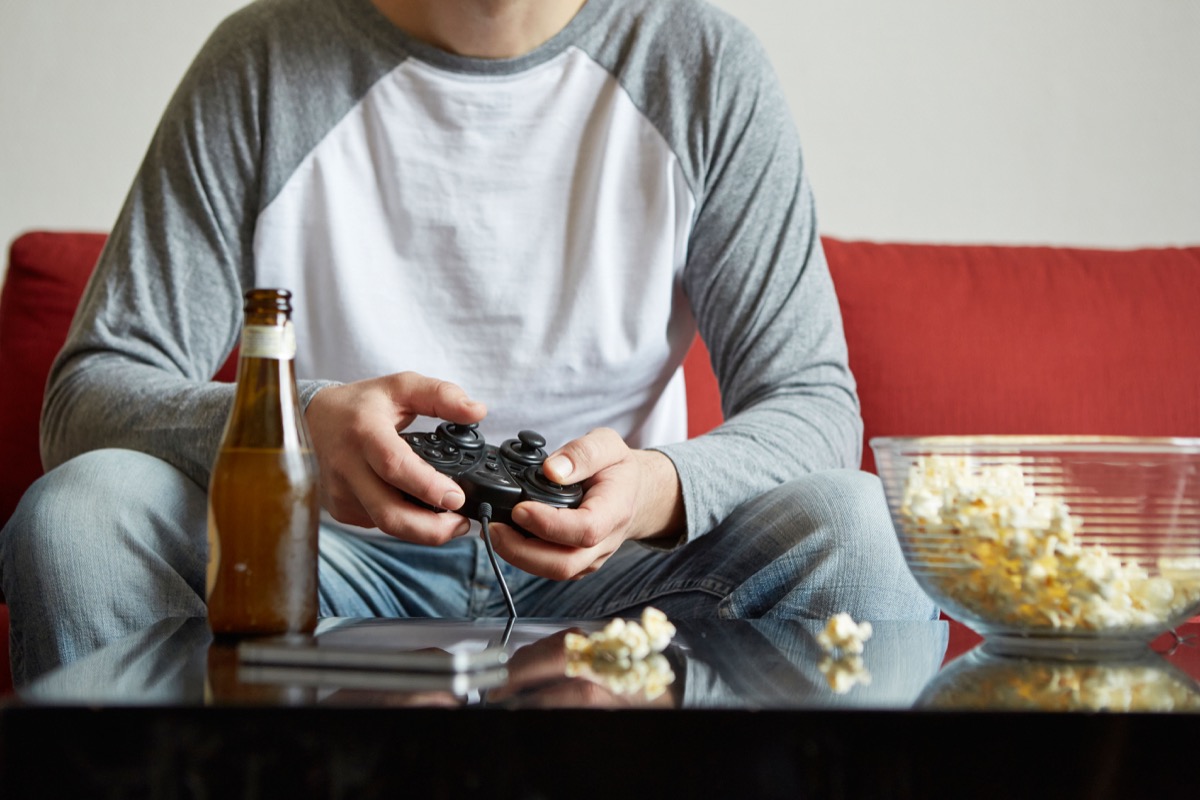
A wizard has just turned your friend into a chicken—what do you do? While this is (hopefully) not a scenario you’re going to come across in real life, this potential virtual scenario might just teach you a resourcefulness that you can use to combat your day-to-day problems.
One 2017 study published in the journal Computers & Education showed that playing commercial video games improved undergraduate students’ adaptability and resourcefulness, even after a mere 14 hours of gameplay. Resourceful people use everything at their disposal to solve problems and prevent stress, so strengthening this skill might just help you relax in the long run.
12
They can help curb aggression.

While violent video games tend to get a bad rap, there’s some evidence that these games can act as a sort of pressure valve for stress and aggression. In fact, one 2010 study from Texas A&M International University found they can even help with mood management. In the study, researchers determined that violent games were more effective than non-violent ones at reducing depression and hostile feelings.
13
They generate laughter.

Something funny is bound to happen when you’re playing a game with friends or family—and laughter is nature’s stress-buster, reducing heart rate and blood pressure in the short term and increasing your wellbeing in the long term, according to the Mayo Clinic. It’s also the quickest way to release endorphins, so be sure to laugh at yourself at your next family game night! And for more reasons laughter is the best medicine for all that ails you, check out these 20 Crazy Health Benefits of Laughter—No Joke!
To discover more amazing secrets about living your best life, click here to follow us on Instagram!